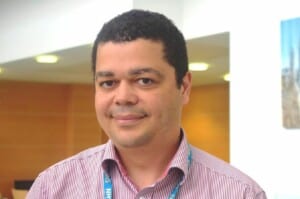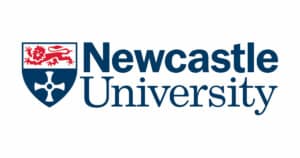Research Impact Report - Project 534
Optimisation of targeted agents for image guided sarcoma surgery
Principal Investigator Kenneth Rankin
Stream Post-Doc
Duration 24 Months
Cost £49,782

Lay summary
Sarcomas are rare cancers that usually affect an arm or a leg. They can occur in a wide age range – from children to the elderly, with many occurring in younger people. Patients diagnosed with a sarcoma are usually referred to an orthopaedic or plastic surgeon with expertise in treating these cancers. Sarcomas behave differently from patient to patient, some are on the skin, while others are deep in the muscle or bone, some grow very quickly and others quite slowly. Scans help the surgeon plan the operation but the decision of how much healthy tissue needs to be removed is made during the operation.
Unfortunately, surgeons often have to remove healthy tissue alongside the tumour to reduce the chance of the sarcoma coming back. When the sarcoma is removed, it is assessed in the lab by a pathologist and if it is completely covered by healthy tissue then this is called ‘clear margins’. However, the removal of the healthy tissue can leave patients with lifelong disability and pain that has a major impact on their life.
With the support of ORUK, we have been able to undertake this project which has demonstrated we can effectively cause sarcomas to glow which hold promise for enabling sarcoma surgeons to perform more accurate operations.
We are in discussions with the companies involved in the technologies we have tested and are aiming to do our first clinical trials based on the results of this work within the next few years.
Impact statement
- The mainstay of treatment for most patients diagnosed with a sarcoma involves surgery in the form of a wide excision to remove the tumour. This often includes the resection of large volumes of soft tissue and bone or an amputation, leaving the patient with major functional deficits.
- At the North of England Bone and Soft Tissue Tumour Service in Newcastle upon Tyne we have performed the world’s first fluorescence guided sarcoma resections using indocyanine green (ICG) which is not sarcoma specific
- We have also undertaken a sarcoma MRI/PET study to assess the effectiveness of this technology for sarcoma enhancement using FDG which is not sarcoma specific
- These projects have allowed us to improve sarcoma imaging, but there is a need for the development of sarcoma specific agents to advance the field
- This project will allow us to establish a preclinical pipeline of sarcoma specific agents for image enhancement of sarcomas both pre-operatively and intra-operatively
- Ultimately this work will allow sarcoma surgeons to perform better operations to remove tumours safely while maximising functional outcomes for the patients
Fundamental problem trying to address
In November 2020, the National Cancer Research Institute Sarcoma Research Group reached a consensus that research into new technologies that may improve surgical performance for sarcoma resection are a key priority.
Aims & Objectives
- Appointment of a technician to perform the key experiments of the project under the close supervision of the co-investigators
- Utilisation of sarcoma cell surface targets for image guidance including membrane type-1 matrix metalloproteinase (MT1-MMP)
- The optimisation of radiotracers for pre-operative sarcoma imaging including Zirconium 89
- The evaluation of fluorescence agents for near infrared intra-operative guided surgery
- Our validated in vitro and in vivo models of sarcoma will be used along with the extensive available infrastructure at Newcastle University
Intellectual property
The particular piece of IP for this project lies in the novel click chemistry technique for labelling the antibody. This technique reliably conjugates the Zirconium and the Infrared dye to the constant region of the antibody. This avoid interfering with the variable region of the antibody which is required for effective binding to the target. We are in discussions with our technology transfer team regarding the exploitation of this IP.
Team members & other funders
Mr Kenneth Rankin, Orthopaedic surgeon & scientist
Dr Cory Chan, Academic Foundation Doctor
Dr James Knight, Lecturer in Radiochemistry
Toni Pringle, PDH Student
Dr Helen Blair, Senior Research Associate
We would like to thank ORUK for their generous funding and moral support for this project. We have been successful in delivering results that show promise for changing clinical practice. We managed to keep the project active during the pandemic and this would not have been possible without the support and patience from ORUK. Furthermore this project advanced the skills of Dr Corey Chan (Academic Foundation Doctor) and Toni Pringle (PhD student) who provided fundamental input into the design and execution of the experiments. Kenneth Rankin MBChB MD FRCS, Consultant Orthopaedic Surgeon and Honorary Senior Lecturer, North of England Bone and Soft Tissue Tumour Service, Newcastle upon Tyne
Publications
Abstract – Virtual Oral presentation: Monash University, Melbourne, 22nd September 2022, Oral presentation accepted: British Sarcoma Group, Liverpool, 23rd March 2022
Paper – Submitted to Bioconjugate Chemistry and is under review 22nd February 2022

Tell us your thoughts